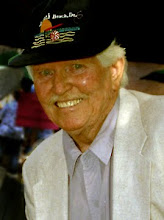Morrison Arrest Memorial
Jim Morrison Memorial
This was originally run on newsletter@jymsbooks.com in late January 2011. What has stayed with me about Jim Morrison was his vision of a oneness that transcends our temporary, earthbound beliefs.
Back in the mid-sixties, I'd been hired to write an article about him for the New York Times Sunday Magazine. This was as The Doors first album was making a big hit. After lunch with the people who were then The Doors management, Jim suggested the two of us go for a walk in a nearby park. That's where he told me he was a poet. I wasn't sure what he meant by poet. He pulled a notebook out of the back pocket of his leather pants and handed it to me. Handwritten lines. "I'd like to get this published," he said. The big commercial publishers were not hot to promote books of poetry, but I thought that with his rising rock star fame, maybe…
As I got to know him over the coming months, a second thing about him leaped out: It was like he saw the world from the perspective of an ancient pantheistic shaman. For Jim, the gods and goddesses were everywhere around us and acting out hilariously and/or tragically through everyone and everything.
I soon realized that Jim wanted to share this vision. That's what his lyrics and performances were really all about. He talked about a rock concert being a shamanic ceremony to lift everyone's consciousness into the ecstatic transcendent.
His detractors—which were many back then, the Times rejected my article—said he was not for real. "He don't wear saffron robes, he's just another grungy hippie." But I knew otherwise. It was like he was born with the certainty that he was an eternal soul passing though another temporary lifetime, and had absolutely no fear of death. He lived fully in that lifetime but mentally and spiritually was separate from it, seeing it as though he'd been abruptly dropped into it, and was sometimes disoriented by it. That vision is what made him such a fascinating enigma to so many.
After hearing news of his death in Paris, I realized that what he was not able to do was live as his real self in our modern reality of mechanistic and supposedly logical cause-effect. He was as uncomfortable in our ordinary reality as Vincent Van Gogh, for he saw beyond it, into the realm of primary causes, the realm of the gods, and tried to share this with us.

No comments:
Post a Comment
Note: Only a member of this blog may post a comment.